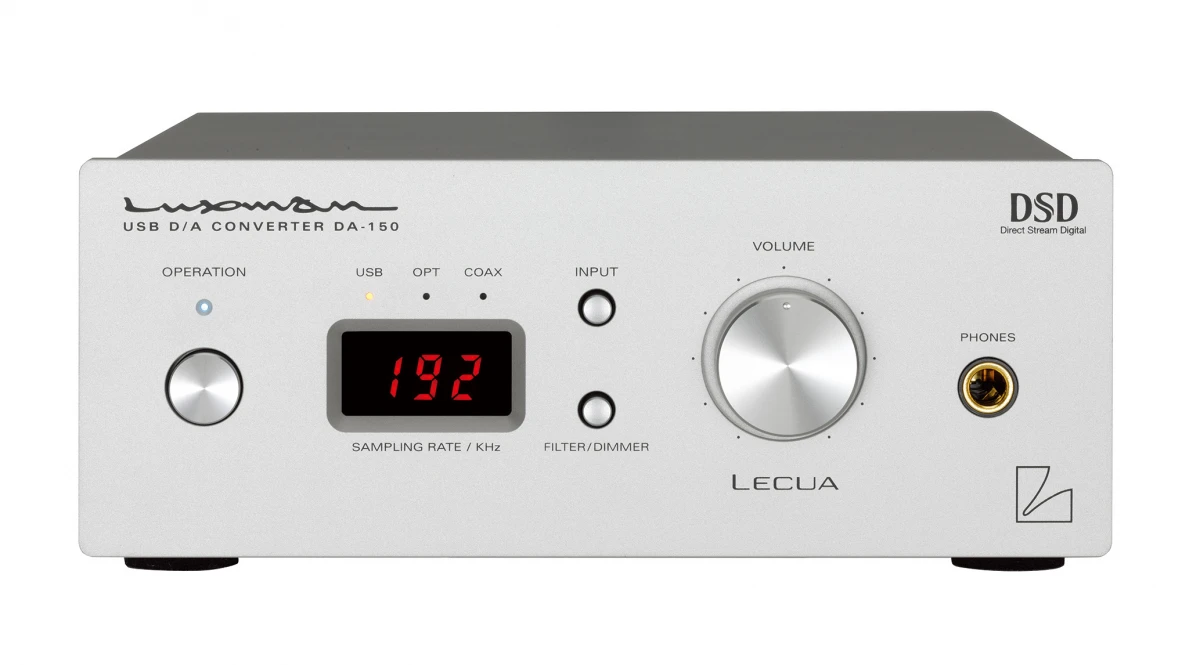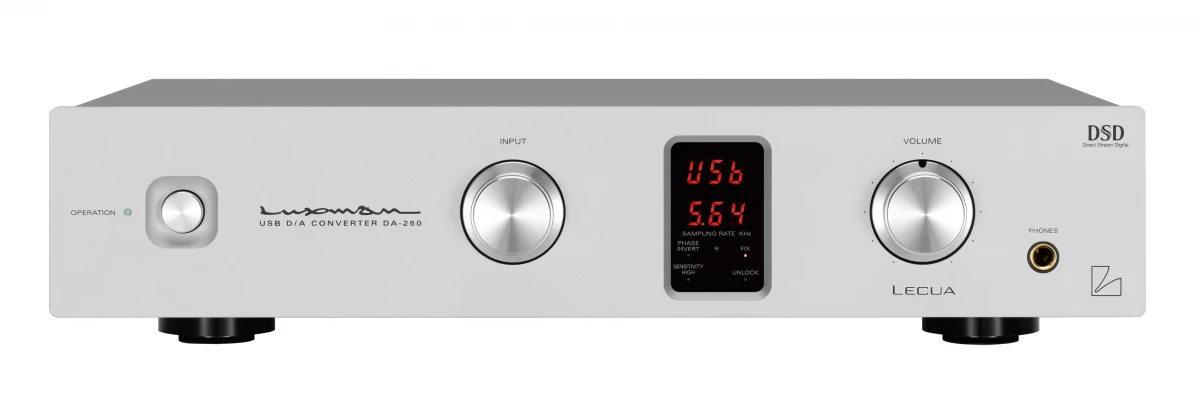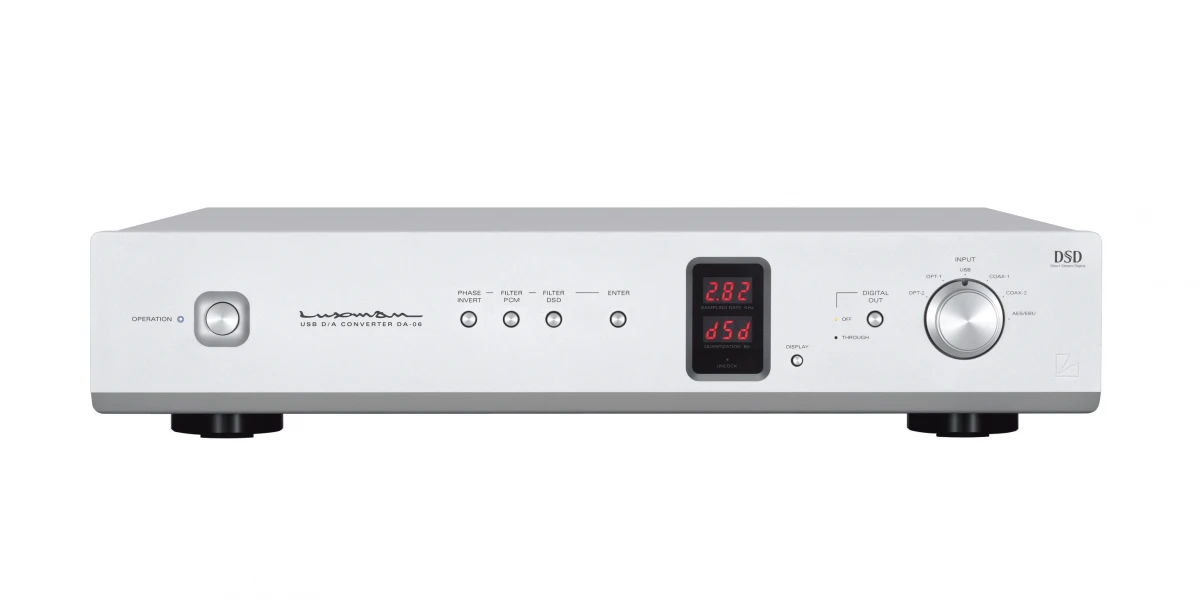DACs — Luxman DA-07X
Description, images, technical data and specifications
Luxman DA-07X
Image source — © Luxman
Simply put, the device is a D-07X CD player, from which the company's engineers seized a CD drive. The developers also report improved sound and expanded functionality of the built-in digital-to-analog converter.
Specifications
Model name
DA-07X
Conversion type
N/A
Engine
ROHM BD34301EKV
DSD compatability
Yes
Parameters
up to 32 bit / 768 kHz and DSD 22.5 MHz
Frequency response low +/- 3dB (Hz)
5
Frequency response high +/- 3dB (Hz)
47 000
Gain (dBu)
N/A
Output Level (balanced) (V)
N/A
Output Level (single-ended) (V)
N/A
Input Impedance (balanced) (Ω)
N/A
Input Impedance (single-ended) (Ω)
N/A
Output Impedance (balanced) (Ω)
N/A
Output Impedance (single-ended) (Ω)
N/A
Analog outputs
N/A
Signal to Noise Ratio (dB)
124
Total Harmonic Distortion + Noise (% at 22 kHz)
0.001
Dimensions (mm)
440 x 92 x 402
Weight (kg)
12.8
Official link
More components

DACs
Luxman DA-150

DACs
Luxman DA-250

DACs
Luxman DA-06


